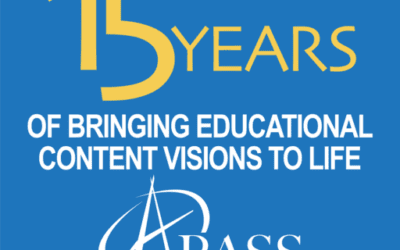In the past, LMS systems were used to track attendance, post grades, and generate reports. Today, learning management systems do more than imagined. Now, leaders have access to data that lets them make decisions that support the vision for their schools. Thus, K-12 publishers can make sure to include these advancements in their LMS systems.
K-12 Publishers Can Incorporate Audience Customization for LMS
Yes, publishers still need to tell users how the LMS boosts their learning. Online tutorials are expected to be included. Help desks are a must. Most importantly, content creation teams win big when they meet with schools and outline how the school will use and manage the system. Faculty, staff, and admins have different backend needs. Students and parents have distinct front-end needs. Today, leaders must guide their content creation teams to examine how to provide support to fit each user group.
Support Multiple Media Formats, an Advance LMS Feature
Likewise, leaders need to figure out how to support a variety of media formats. Besides that, leaders face the challenge of training their staff on how to make these new tools. The investment is worth it. Universities and K-12 districts need to supply content to various audiences in many different media formats. Tech-savvy and not so technically inclined users may need a quick tutorial guide on their phone. Other users may need an old-fashioned instructor-led seminar during orientation or at the start of the school year. The systems must be able to host all of it.
Incorporate Branding
Besides that, K-12 publishers are asked to design an LMS with easy-to-apply branding features. Also, they are asked to give easy-to-use templates for staff to fill in the content. Administrators want to easily add school mascots and logos without using high-end skills. In addition, each user interface needs to be easily manipulated, so that users know when they are on the parent, student, or faculty LMS system site.
K-12 Publishers Can Integrate Chatbots as an Advance Feature
Therefore, publishers can consider using chatbots to answer the most frequent questions asked in the help desk forums. Chatbots answer LMS questions of both faculty and staff. Besides that, some schools are pushing chatbots to aid in recruitment. Prospective students ask the chatbot a question, then get an answer moments later. Still, leaders face the tedious tasks of identifying a learning management system’s FAQs.
LMS Systems Can Provide Data Analytics
Still, leaders guiding their teams to use LMS data to make decisions win in the end. More and more schools are turning to machine learning to determine what courses to run. Using AI to influence the curriculum seems like a bold move at first. Yet, leaders know the perks of using data to guide their content teams. Besides that, using data analytics to make decisions means that teams work on the content that sells. Leaders who use the available LMS data will be able to influence the future of the institution.
K-12 Publishers Can Create an LMS for Multiple Platforms
In addition, analytics can show leaders the skills set their staff needs. Local and global institutions demand consistent experiences across platforms. K-12 publishers face the challenge of writing across platforms. Learning management systems need to be able to support multiple platforms. Besides that, the LMS must let users collaborate.
Collaborative Mindset
Also, global online platforms are popping up. These platforms let universities notify other institutions of projects that are available. Besides that, this active call list seeks and gets others to join in the fun. Collaboration reduces costs. LMS is a great place to collaborate. Publishers may find they need to join the discussion in a very different way than they have in the past. Leaders who invest in learning and pushing LMS tools benefit.
In sum, when creating LMS systems, K-12 publishers can create advanced features beyond tracking attendance and generating reports. Features and benefits like creating chatbots, incorporating branding, and focusing on audience customization are a boost for learning. LMS systems acceptance has grown. Publishers who provide user support win over the hearts of the clients. Leaders who take the time to identify what is missing in their LMS will profit and learn.




